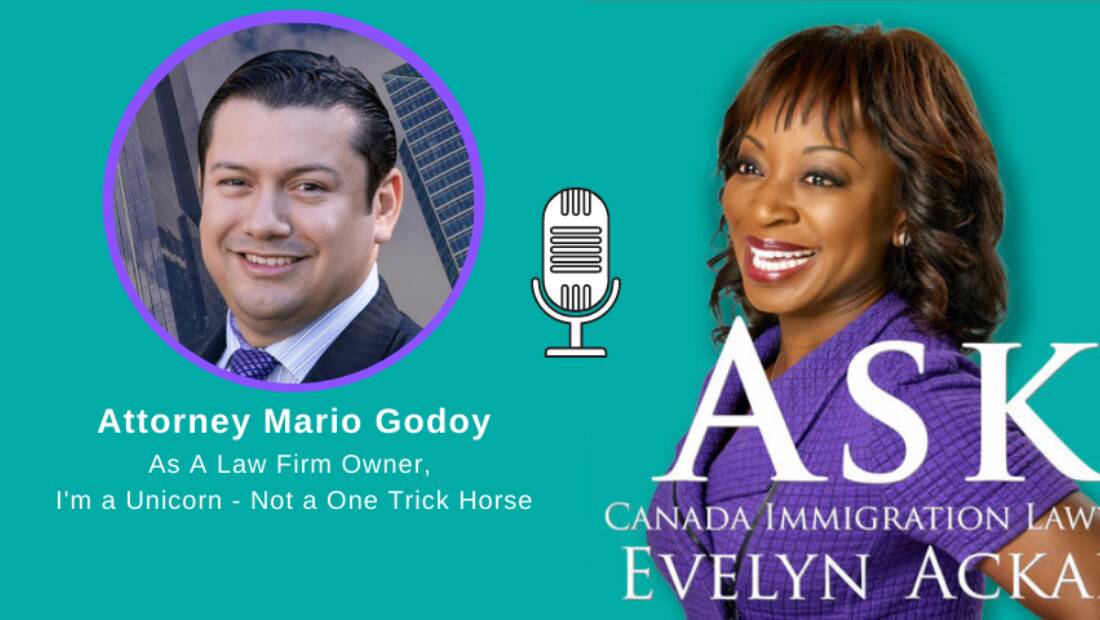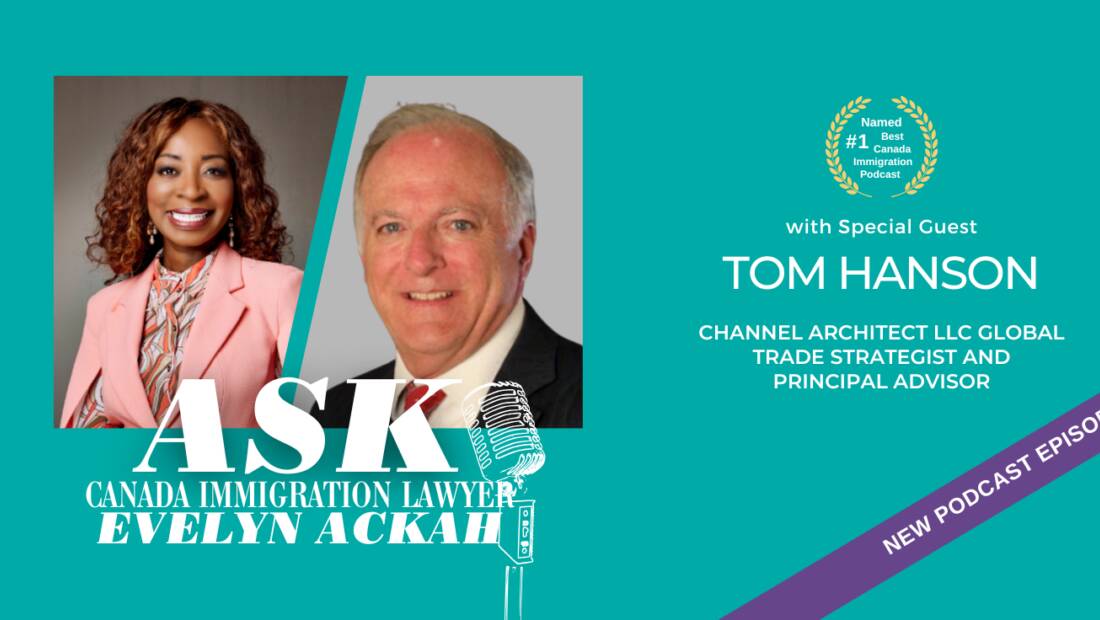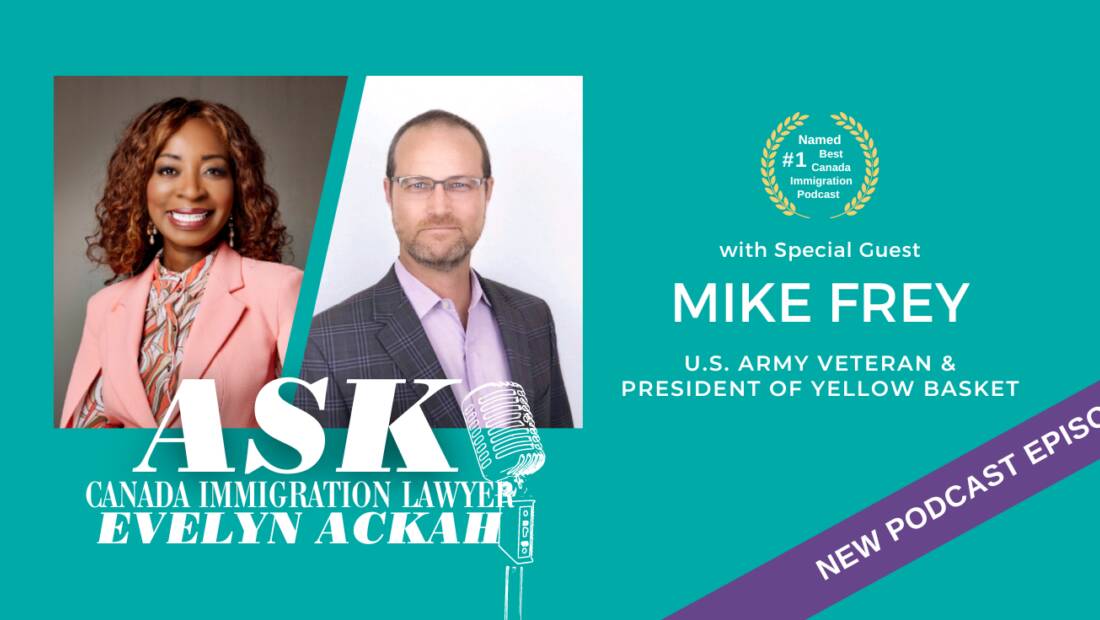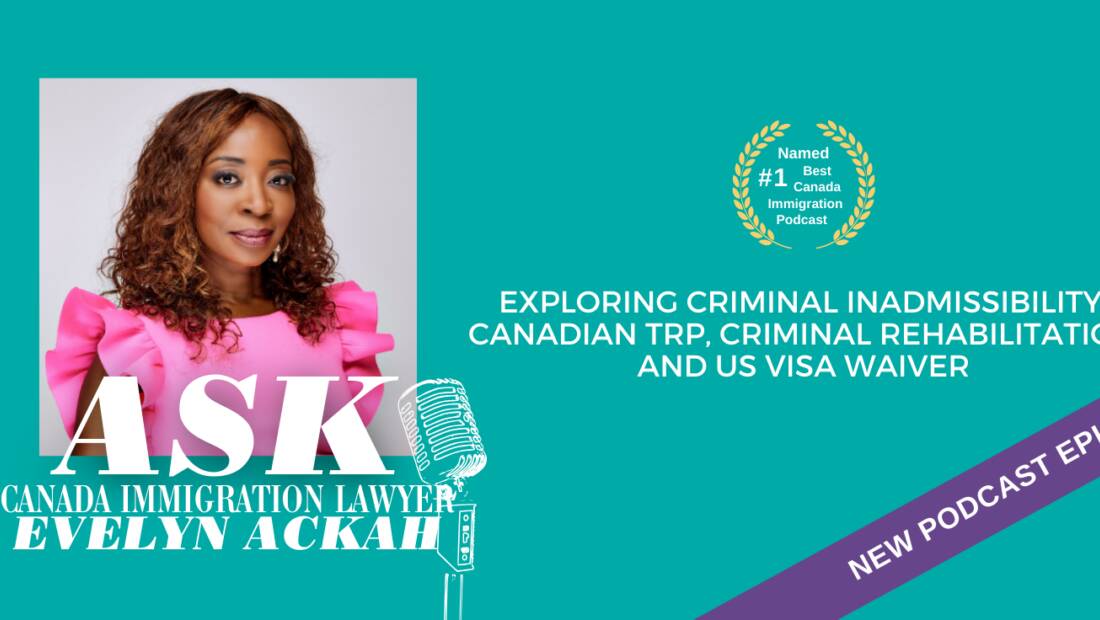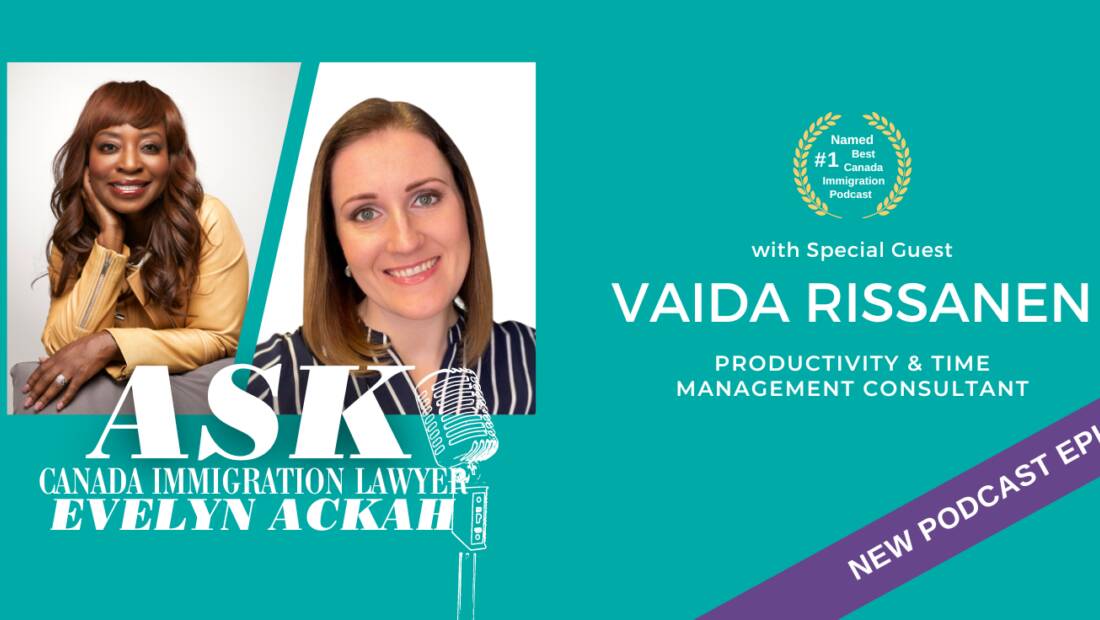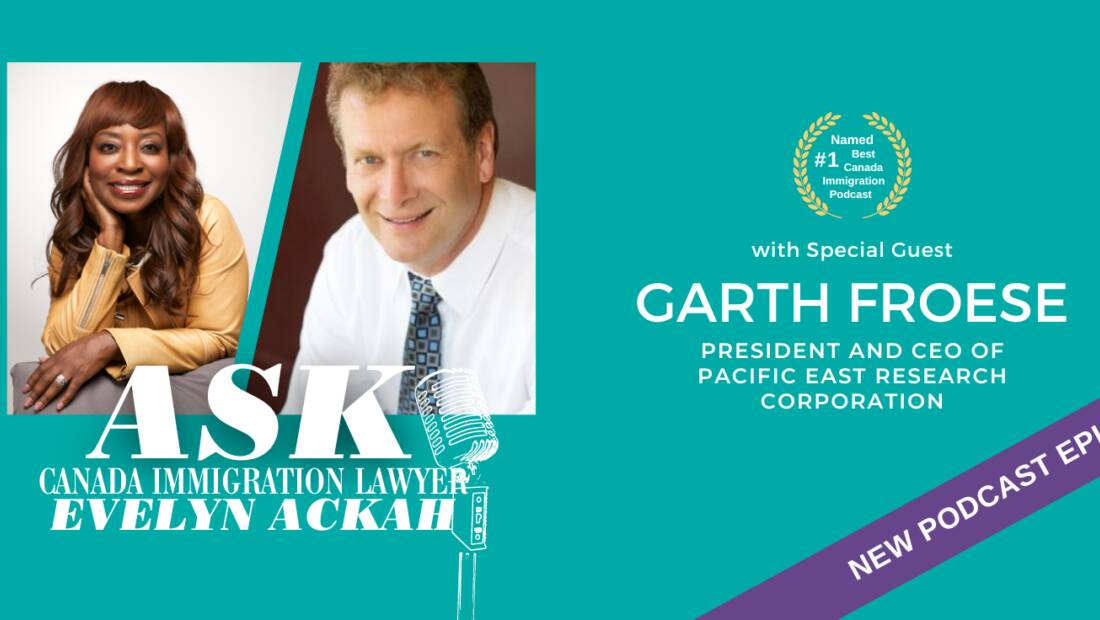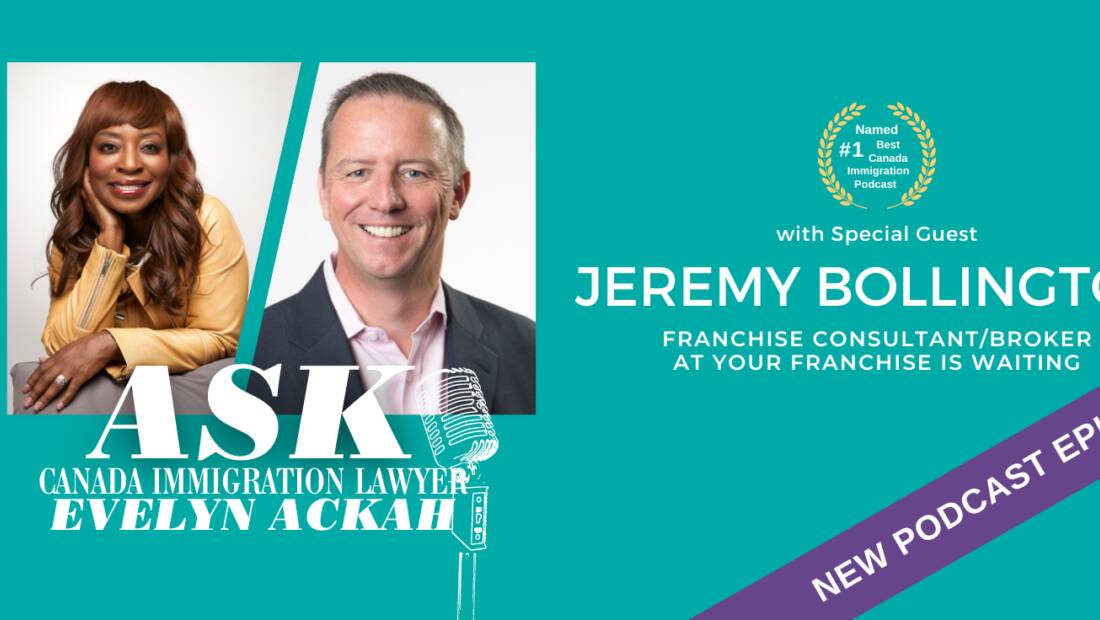Or listen on your favourite podcast app
Attorney Mario Godoy is the founder of Godoy Law Office and Estate and Probate Legal Group. He lived the true immigrant's American Dream and success story. He grew up seeing his family experience injustices many immigrants face in the United States and went to law school with the goal to be part of the solution. As a legal entrepreneur who practices immigration law, criminal law and estate and probate law, plus running 2 successful, thriving law firms, Mario shares lessons he's learned along the way... and has advice for other lawyers who don't want to be a one trick horse.
- When Mario realized he wants to be a unicorn, not a one trick horse
- What led Mario to practice 3 very different types of law - and open 2 different law offices?
- The legal partnership that makes it all work
- The U.S. immigration courts have a huge backlog. How has Mario helped his immigration clients cope with the delays?
- His hiring strategy behind both law firms
- Mario's old-school calendaring system for long-term planning
- Mario-isms and advice on leading a team
- Why you need to work on yourself before you can work on your team
- Mario's top 3 lessons learned for running a law firm
About Evelyn Ackah
Evelyn Ackah is the Founder and Managing Lawyer at Ackah Business Immigration Law. We work with individuals and business owners from all over the world. For more information on immigration to Canada or the United States, Ask Evelyn Ackah at Ackah Business Immigration today at (403) 452‑9515 or email Evelyn directly at contact@ackahlaw.com.

Transcript
Evelyn Ackah:
Good day. Thank you so much for joining me. This is Evelyn Ackah and Ask Canadian Immigration Lawyer Evelyn Ackah Podcast. I have the pleasure of introducing my friend and colleague Mario Godoy. Welcome, Mario. Thanks for joining us. Let me give you a quick intro first. Mario is the founder and managing lawyer of Godoy Law, and also he's got an Estates and Wills Probate Practice, and he also does some Criminal Law. So he's a very, very busy man, and I'm very grateful that he could join us today. Thanks again for joining.
Mario Godoy:
Hey Evelyn, thank you very much for having me on. Always a pleasure to get to hang out with you and chit-chat. And I was looking forward to coming on the podcast. So thank you for having me.
Evelyn Ackah:
Fabulous. One thing I really like, and I think you and I connect on Mario is we're both immigrants, and tell us a little bit about your story as an immigrant and how you ended up in the U.S. And maybe why you ended up doing the kind of work that you started doing as an immigration lawyer.
Mario Godoy:
That's a great question. I would say that like you said, I'm an immigrant, I'm from Guatemala. So I was brought over to the United States as a baby. And so I grew up in the United States, but culturally, as I'm sure you also had the challenge of, your parents grew up in a different culture. So I got to experience both cultures growing up here in the U.S. that I'm forever thankful for. But how I ended up in immigration was just simply that it kind of; I lived that life story. It's the practice that is about me, just like it is about you. Right? And, in my case, I lived every part of the immigrant experience through the citizenship. And then, in my case, I also had a cousin that was a green card holder that he managed to get himself into some legal trouble; got bad legal advice that would've been great for someone born in the U.S., but not for someone that was on a green card and ended up getting deported without really knowing what the consequences were going to be. And so that's when I knew that there was an issue with criminal defence
Evelyn Ackah:
Yes.
Mario Godoy:
and immigration law. And for me, the other thing was that having grown up in an extended family, my grandmother was like one of my closest people growing up. And just later on in life, finding out that, although she came here legally when she got sick, the family decision was that there was better healthcare in the United States. And so we were going to keep her here. And so, when she passed, she was out of status. And so a lot of my clients, I can sympathize with them
Evelyn Ackah:
Yes.
Mario Godoy:
In more ways, shape, or form. And so it was really an easy, easy practice for me to pick up.
Evelyn Ackah:
So do you think that obviously the experience and the empathy and the lived experience of being an immigrant, and I have the same from Ghana, coming over at 5 it's... I never thought I'd be doing this kind of work. So how did you move into this? So we both went to law school, and you went to a great law school as well. What led you to this area? Was it the criminal side first? Dealing with; because you're a litigator as well. Is that the thing that drove you first? Or was it the immigration?
Mario Godoy:
Yeah. Good question. would say that it was wanting to resolve the problem. Right? I think often enough, one of the mistakes that a lot of business owners make. And I think also, especially amongst attorneys, is that we see ourselves as a one tool horse. And the problem is that the criminal defence attorneys, for the most part, it's gotten better over time, but at that time, we're not trained on the immigration law. The immigration attorneys didn't want to set foot in the criminal defence courtrooms. And so you needed this unicorn that knew the immigration law, but wasn't afraid to step into a courtroom and face a prosecutor and an upset judge. And so what led me into it was I wanted to resolve that problem. And then I basically picked up both areas and we still practice both areas.
Evelyn Ackah:
Really? I think it's incredible because yes, you're right. We do like to get niched and sometimes it's hard to get out of your niche. And so the fact that you're balancing both really, I think helps, especially some of the clients, you and I both have, who do intersect. So can I just get clear, you're doing criminal and immigration?
Mario Godoy:
Yeah. So Godoy Law basically focuses on help being immigrants to avoid the pitfalls of the government process. And that includes both criminal defence and immigration law. I would say that probably 15% of my practice is criminal defence or criminal appeals. We do limit it really to focusing on folks that are immigrants. If I have someone that comes in, that's not an immigrant and wants our help, depending on what the case is, we may take it on, but just because of the amount of energy that goes into trying to defend someone in criminal court, that's a resource that I guard.
Evelyn Ackah:
I hear that. It's interesting for our practice here at Ackah Law, we get referrals from, I think the criminal lawyers that know enough to know what they don't know. Right? And as soon as they hear, "immigrant" or "foreign worker" or "in process for permanent resident", but not a citizen yet where they can still be deported, at least in Canada, they will reach out. And then we just like, you have to decide, do we want to do this? Is this in our wheelhouse and what advice? Or usually we do legal opinions where we give a legal opinion as to the impact of settling or pleading guilty. What happens to them? So that then they can make a strategic decision in court as to how they want to play the criminal side of things.
Mario Godoy:
Well, what's really interesting is that there is statistics out there, especially like here in Illinois the actual state's attorney publishes every couple of years, here's all these types of cases. These are how many cases went to trial. These are how many cases went to a jury. I would tell you that I would say probably like good 90 to 94% of cases settle in a plea. And so if you're an immigrant 94% of the time, there's going to be a settlement. And so you better make sure that it either doesn't yank your green card, like it did my cousin, or it doesn't leave you in such a position that you can't ever apply to become a green cardholder or a citizen.
Evelyn Ackah:
Exactly. Exactly. Yeah. The impacts are so huge for immigrants. My goodness. Have you noticed that the courts are backlogged right now? We're in now 18, 19, 20 months. I don't even know if COVID, and it may be different in the U.S. than it is in Canada, but things are slower here. We've been seeing slow processing for everything because everyone's working from home or less staff or whatever. What's the impact been for you in your immigration practice?
Mario Godoy:
Well, yeah, I can tell you where I might be in 2024, I've got dates that are set out to 2024, unfortunately, and that's challenges in the removal defence practice. So that's one of the areas that we really focus on and we excel in is going to be like dealing with those cases, but you got to prepare them for trial. And then we have instances where maybe there's COVID scare. I often like the joke that sometimes the judge just calls in, right? They just call, they got something that happened in their life. And then you go back on the general docket. It is a sad thing that, well, good for this particular client. My first deportation defence client still has not been set for a final hearing.
Evelyn Ackah:
Wow. Well, that's good For the client.
Mario Godoy:
From like 2011.
Evelyn Ackah:
God. That's crazy. So do you think, Mario, it's COVID or it's just, this is the slow process for you generally?
Mario Godoy:
It's a slow process in general, but COVID just, really threw an axe in it, both at the transactional immigration dealing with USCIS level, and also with the immigration court, some of things require in-person hearings. And during COVID those things were set apart or you had a client, there were plenty of clients of ours that unfortunately did get COVID and we had to deal with that. Right? Yeah. Those are all things that come into play. We've had instances where the person who was petitioning caught COVID passed away and now the beneficiaries left without a petitioner. And so-
Evelyn Ackah:
Unbelievable.
Mario Godoy:
- It has been rough one, but I think the election of Biden gave some hope to folks. We'll see.
Evelyn Ackah:
Is this still too early?
Mario Godoy:
He inherited a very broken system.
Evelyn Ackah:
It is.
Mario Godoy:
But there have been, I will tell you that we have been able to help people apply for termination of their deportation case. And if you have someone who came here and doesn't have any real criminal history and we can show some merit right now, the prosecutors are agreeing to closures or they're terminating cases.
Evelyn Ackah:
Oh, that's so great. That's incredible. The kind of impact you have on people's lives, because I don't do that work as you know. I find it just like so stressful and the idea of people's lives in your hands, at least from the deportation or being sent back to prosecution or persecution can also be really challenging.
Tell me, Mario. I mean, we've known each other for a few years now through our business group. How has your business changed? Because you've gone from criminal to immigration, crimmigration, we call it, and now you've got this estates and probate law firm. What was that pivot about for you? I'd love to hear the story.
Mario Godoy:
Yeah. And once again, I looked at where would I be passionate about something? And so in my case, back to that immigration story where I had my grandmother, like her, her father, my great-grandfather was a vaquero. And so if you think about like, if you saw the movie City Slickers, or like, yeah. And so like the idea of transferring basically cows or bison or whatever, it was to another part of the country and he didn't make it back home. Right? And although the farm that they owned was owned by him and his brother, my grandmother did not get her share of the property. And then although she got to grow up on it, when she became an adult, she was basically kicked out. And so my family had an entire generation of poverty that could have been avoided.
Mario Godoy:
And so that had an impact on us along the way. And so that was something that for me, the estate planning, helping a family through the probate process was also just another story about that, and I think there it's interesting, right? Because when I'm acting as an attorney, I'm really focused on immigration and criminal defense. That's like, if I have my attorney hat on and I always talk to my staff about this. Either got my owner hat on, or I got my attorney hat. If I got my attorney hat on, I'm really focused on immigration and criminal defence. I know enough on the estate planning and probate to be dangerous, but I have a partner who is awesome, Steven Novak. And he basically leads the legal department at the other firm. So I took all of the lessons that I learned from Godoy and growing it out and converted those to a brand new firm that is incorporated separately and as its own separate entity. And we were able to, I always like to tell folks, I hit like every mistake on the "don't do that tree".
Evelyn Ackah:
You and I both.
Mario Godoy:
And so this second time around, I was actually able to really enjoy it more. Because I knew not to do that.
Evelyn Ackah:
You knew what not to do. That is fabulous. I'm so happy to hear that. When you talk about this story of your family and estates and wills recently, I mean, I don't know if you even know this, but we've started to provide the services for simple wills and simple estate support. We have an associate, who's got lots of experience in it. And so we're slowly developing that practice. But it's interesting because we had a client come from Mexico and her husband was Canadian. They lived in Mexico for 20 years. They had a daughter also eligible for Canadian citizenship. They moved back and he died within like two months of arrival. It was just awful. And of course she spoke no English. So our Spanish-speaking team members were on the phone and people were calling us to see what we can do to help.
Evelyn Ackah:
And it just was devastating because you realize she's in another country, her husband is dead, and she doesn't speak the language and there's no Canadian will, everything was back home. And that's what really started me thinking about, we have to be able to provide more services to people when they get here, not just getting them here, getting them legal, but how do we help them protect themselves as they move forward in their new lives? And so at Ackah Law, we're starting to think about putting together packages where we can help with that. We do corporate and corporation works that out for companies, we do that, but then thinking about wills and estates and then thinking about, is there employment law issues we have to deal with if you're coming from another country with a different employment contract?
Evelyn Ackah:
So do you need tax advice, like trying to bundle these services because it's so heartbreaking when something like this happens and we're useless at this point. So if we can help our existing clients, when they arrive say, let's just get you a simple will. You may not have a lot of resources now, but you could have a family. You could have a house soon, you could have... so that they have some protection, because it's almost like what they don't know can really impact them. Right?
Mario Godoy:
Right. And a lot of the fights that we have in probate generally stem from it. I like to call it like the other divorce court. Because that's family members that dislike each other that don't like that this one family member had all of mom's attention or that they got to live at home. How someone else didn't get to live at home. Or the first spouse. And it's a second spouse and the first set of children and it's rough. Right? And so that is, once again, back to this mindset of like, I want to help the client resolve the entire problem and you're dead on that, hey, this is something that we can educate people that we can help them avoid tarnishing their legacy.
Evelyn Ackah:
It's brutal. It is truly brutal. Tell me, Mario, why you decided to keep them as two separate businesses? Because I, again, I'm having, you and I have a common contractor we work with that we love. How did you decide to do that versus working through your firm? Is it a branding reason or just, you didn't want to dilute all those years of Mario Godoy Law to start something new? Like I'm interested in that because we're at that point and I'm trying to pick your brain right now while I have you for free?
Mario Godoy:
Yeah. No, that's a good question. You know, I looked at it, there's a couple of schools of thought. Right? And so one of them was you're right, the branding was very important. It's easier for me to get the marketing message out that we focus on helping immigrants navigate the pitfalls of the immigration process, right? The other firm, we're helping you through life's toughest moments and preserving your legacy, right? Those are two different firms. At Godoy Law, one of the things that, it's kind of like an unwritten requirement, but we favour candidates in the job pool that have lived the immigrant process -
Evelyn Ackah:
Me too.
Mario Godoy:
- that either are an immigrant, have family members that are immigrants, or somehow saw the injustice and they're crusading to make the world a better place. And so everyone right now on my current team has that. That's branded in them.
Evelyn Ackah:
Yes.
Mario Godoy:
And that makes a gigantic difference.
Evelyn Ackah:
It does.
Mario Godoy:
Right? And also being able to say, "Hey, I was on your side once" or "Hey, my dad was on your side once. Don't worry. I know what you're feeling." Right? Because for us, a lot of our clients are, and I'm sure for you too, they got, this immigration status is a big black cloud or weight that's on their fingers. Right? And so us being able to say, I can understand where you're at makes a big difference. In the probate practice and the estate planning, we hired people that have lived the probate process.
Evelyn Ackah:
Ah, interesting.
Mario Godoy:
Right? And so our number one client relations manager, he actually lived through a messy probate process and lost contact with his sibling for a number of years. And so that's what I was looking for during that interview was, okay, you get it, you can tell people, from your own experience, what it's like if you do not prepare.
Mario Godoy:
Right? But it's like the value in having an attorney, family in this process. And so that's the other aspect is that both firms while we're kind of like cousins, we're different. We have different missions. And our values are slightly, just slightly skewed differently. Like in one firm where we talk about candour and imagination and all the good things that immigrants bring, the other firm has some of that, but we really focus on stewardship. And we are there at your side to make sure that this legacy was carried on correctly. They're the clients, some of them want to be vindicated that they did the things as their loved one wanted them done. Or they want to honour that memory because this is the last thing they're going to do for their mom or dad. They want to make sure that they do it right.
Evelyn Ackah:
Did you, sorry, Mario, I was going to ask you, did you find during COVID you were busier like on the wills and estates probate side? Because I mean I've heard of so many family members were lost and things like that. And people were getting worried about illnesses. Were you busier as a result of this crisis, you think?
Mario Godoy:
We were. It was a different busy because I would say that we focus a lot on probate and litigation. And the courts were closed. Courts were closed for a quarter pretty much. Right? And so you have all this stuff that basically backed up the system. And so I was quite proud that at both firms, no one was let go, both firms either met the same revenues as the previous year or we exceeded the revenues.
Evelyn Ackah:
Great. Which is a win. Exactly, in this environment.
Mario Godoy:
Everyone that worked here.
Evelyn Ackah:
Yep. That's fabulous. Wow. So let's just quickly wrap up. I want to know about, what I love is I see that you're on all the websites and you and I are a bubble and we're always looking to get better and better. What do you think are your top three learnings takeaways from running a firm, as long as you've been running now, two firms, what do you think it has taken you in terms of your personal transformation and your development to be able to transform your businesses?
Mario Godoy:
Yeah. Well, this is going to be a podcast, unfortunately, they can't see the background here, but if you were to look at it, it's like a wall-to-wall calendar.
Evelyn Ackah:
We can see it.
Mario Godoy:
Yeah. Yeah. So for 24 months, I've labelled out what we're going to do. And I think part of the number one lesson is going to be to play it the long game. Right? I think that's one of the number one things that you can do. The other aspect is resilience. Right? And fortitude, if anything, ideally, if you had a business that survived during COVID, that's now etched into your soul because you survived COVID.
Evelyn Ackah:
I know.
Mario Godoy:
And so the resilience and the fortitude and the do whatever it takes to get to the finish line during that time period, ideally is something that, because the thing is, it's really neat having the two different businesses.
And if you decide to go down this journey, it is neat in the sense that, they both have similar problems sometimes just at different magnitudes. And so everyone always talks about this metaphorical of like when I get there one day, everything will be resolved. When you get there one day it's going to be the same problems. It's just going to be at a different magnified level. Right? Or it'll be presented with new problems, but emotionally it may still be the same, the same thing of like, braving, the trying something I haven't done before or something where you need to emotionally grow first to get past it. And so I would say,
- always think about the long game, right?
- be resilient and
- then always be working on developing your emotional intelligence.
Evelyn Ackah:
That's true. Oh, I love that Mario. That's very good advice. I think that as leaders we're always looking to improve and I think you want to be with the team, that's also wanting to be improved, be improving on a regular basis. But I've learned too from you and others, that the success you have, I guess business-wise, is really in proportion to this success of yourself, with your mindset, with your education, with your learning, with your positivity, whatever, it all ties in, right? And you see how connected they are.
How do you keep your staff motivated during all of this? As everyone's dealing with everything from mental health issues, to family stress and children at home and illness, how have you been able to keep things moving forward in a healthy, positive way for your team?
Mario Godoy:
Yeah. We focus on your family first, right? Or if you're educating yourself, we try to help folks with their time schedules or when life happens. Usually, it's just the, "Hey listen, are you going to miss a client appointment? Is there like a due date? And if there's not, then let's just make a plan for when you will make it up." And I think that helps out. Constantly checking in with your staff to find out what their goals are personally, financially, professionally, every 90 days, helping them achieve those goals, money only goes so far. And so I think part of it is you've got to deliver that vision and then you've got to continually communicate. I always tell everyone, communicate until they're making fun of you. Right? And so what I've come to learn is that there are certain "Mario-isms" about, and I'm like, good. I finally got through to that.
Evelyn Ackah:
Good. It takes that long. Doesn't it? Sometimes?
Mario Godoy:
But I think that's why as a business owner, working on your emotional intelligence and your resilience is so important because when you get to work, you can't come to work hoping to find love from your staff or getting your self-worth from that. You're there as the cheerleader for the team and as the coach for the team and as the vision driver for that team. And so you need to work on yourself first before you can give that to someone else.
Evelyn Ackah:
Absolutely. Oh, that is so wise. I totally agree. I'm working on it every day.
Mario Godoy:
We're great.
Evelyn Ackah:
Never-ending. You're doing something phenomenal. I don't know what I'm doing, but it is up and down and you know, we'll have to talk offline and I want to pick your brain about some other things that I'm thinking of doing, but I really, really appreciate your time, Mario, on this podcast and for just sharing your story. I think people are so inspired and motivated when they hear other people's stories and yours is a significant inspiration. Really. Now you don't just have one firm. You have two, next time I interview you'll have five. Like I love that there's this limitless perspective. And so when I see the growth in you that I see, even if we don't see each other as much as I would like, the fact that I'm following you and I'm seeing what you're up to you, it's so inspiring for me up here in Canada. And I want to thank you so much for your time, Mario.
Mario Godoy:
Okay. Thank you for having me.
Evelyn Ackah:
I appreciate it. Okay. We'll talk to you later. Bye.
Mario Godoy:
Bye.

